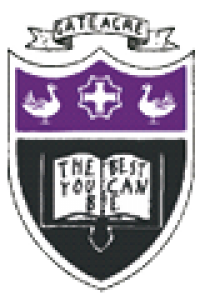Gatsby Benchmarks
The Gatsby Benchmarks are a framework of 8 guidelines about what makes the best careers provision in schools and colleges. The Careers Strategy is built around them. Our CEIAG programme is based around these 8 benchmarks.
Research tells us that careers education is the linchpin for school improvement - pupils are motivated when they know what they want to achieve in their lives and how to go about it.
The publication of Careers Guidance and Access for Education & Training Providers in January 2018 clearly states:
“A successful careers guidance programme will also be reflected in higher numbers of pupils progressing to positive destinations such as apprenticeships, technical routes, sixth form colleges, FE colleges, university or employment.” Page 5
The new guidance sets out some clear expectations. The most important of which is that all schools should have a Careers Leader and that all schools should be working towards achieving all 8 of the Gatsby Benchmarks.
The 8 Gatsby Benchmarks are:
1. A stable careers programme
Every school and college should have an embedded programme of career education and guidance that is known and understood by pupils, parents, teachers and employers.
2. Learning from labour market information
Every pupil, and their parents, should have access to good-quality information about future study options and labour market opportunities. They will need the support of an informed adviser to make best use of available information.
3. Addressing the needs of each pupil
Pupils have different career guidance needs at different stages. Opportunities for advice and support need to be tailored to the needs of each pupil. A school’s careers programme should embed equality and diversity considerations throughout.
4. Linking curriculum learning to careers
All teachers should link curriculum learning with careers. For example, STEM subject teachers should highlight the relevance of STEM subjects for a wide range of future career paths.
5. Encounters with employers and employees
Every pupil should have multiple opportunities to learn from employers about work, employment and the skills that are valued in the workplace. This can be through a range of enrichment activities including visiting speakers, mentoring and enterprise schemes.
6. Experiences of workplaces
Every pupil should have first-hand experiences* of the workplace through work visits, work shadowing and/or work experience to help their exploration of career opportunities, and expand their networks.
7. Encounters with further and higher education
All pupils should understand the full range of learning opportunities that are available to them. This includes both academic and vocational routes and learning in schools, colleges, universities and in the workplace.
8. Personal guidance
Every pupil should have opportunities for guidance interviews with a careers adviser, who could be internal (a member of school staff) or external, provided they are trained to an appropriate level. These should be available whenever significant study or career choices are being made. They should be expected for all pupils but should be timed to meet their individual needs.

